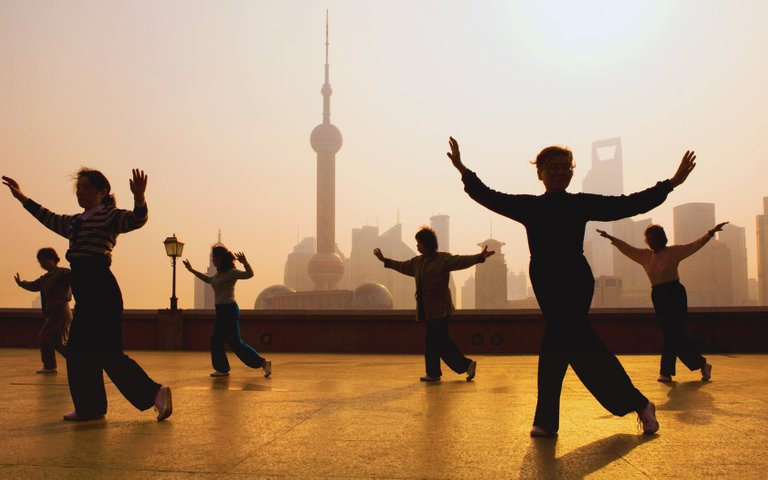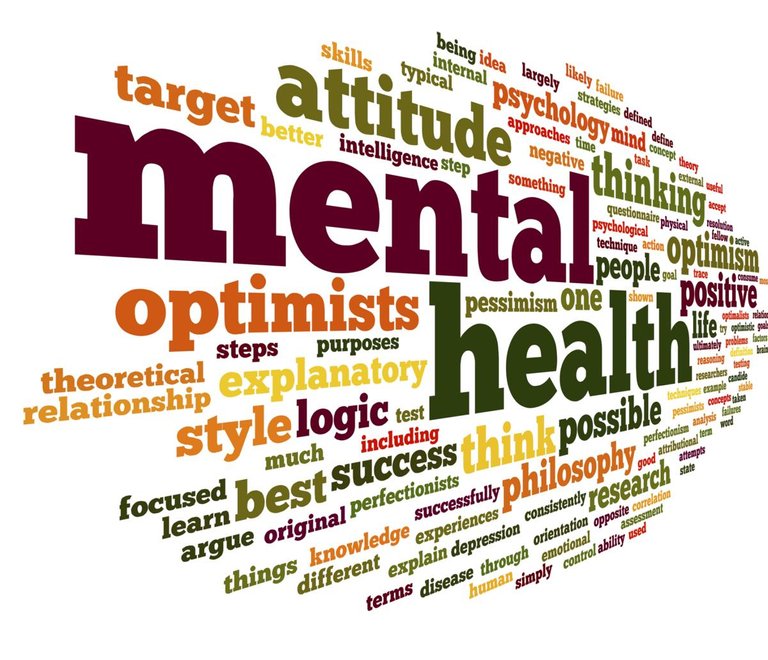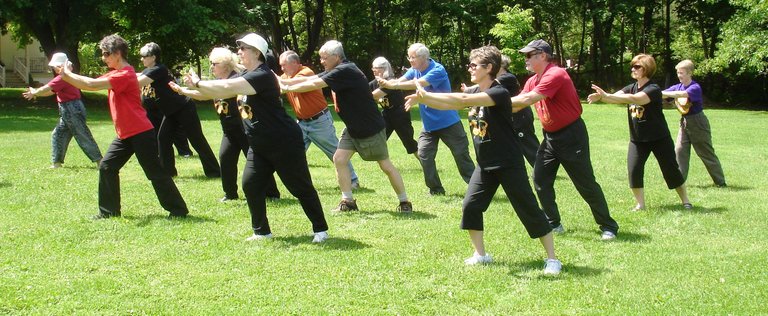By: Ryan Lipinski
April 27, 2007
Taylor-Piliae, R. E., Haskell, W. L., Waters, C. M., Froelicher, E. S. (2005). Change in Perceived psychosocial status following a 12-week Tai Chi exercise programme. Issues and Innovation in Nursing Practice, 313-329.

Abstract of Article
This article is about a twelve week Tai Chi program consisting of Chinese people average age of 66 +/- 8 years. Participants were limited to participate by being ethnic Chinese, Over 45 years of age, English or Cantonese speaking, had at least one Major risk factor for CVD, had not practiced Tai Chi in the past six months and were willing to sign a informed consent. They studied Tai Chi and its psychosocial effects on the participants and cardiovascular disease in an effort to reduce stress, improvement of health, and emotional well being.
Application of Theory
They used the social cognitive theory based on an interaction model of human behavior. This theory is useful for understanding the behaviors between the person and their environment. Tai Chi is thought to promote self-efficacy beliefs, through enactive mastery, modeling, verbal or social persuasion, and psychological and affective status.

Scientific evidence suggest that exercise such as Tai Chi relates to improvement in mental and emotional health and well being and is thought to be a good form of stress relief. Tai Chi is a low impact, moderate intensity aerobic exercise, incorporating relaxed breathing and mental concentration. This makes Tai Chi a good choice of exercise for older adults who have trouble in other workout routines due to their age and mobility.

Older adults and those with chronic illnesses may experience social, psychological, and health related barriers to exercise. This makes adopting Tai Chi a great challenge. Paying attention to these barriers is important for understanding physical activity and exercise behavior. They applied the social cognitive theory by means of acknowledging these barriers and working through them at a slow and progressive pace, breaking down the program into various levels and periods of refinement. Each small step is a successful step towards accomplishing and developing personal efficacy in completing the entire Tai Chi program.

Interested Participants were drawn in from the community through the use of the flyers, brochures and newspaper ads. This way of recruiting members demonstrated the Social Cognitive theory. Identifying that the people know what to do, have the skills and abilities to do it, motivated to do it, believe they can and have the environment that supports the behaviors. The program instructors reinforced the teachings helping the participants in properly performing the motions, postures, and speed. In addition they monitored the safety of the participants and corrected them where needed.

Outcome of Theory Conclusion
It was found in the twelve weeks of assessment that there was an increase in self-efficacy, an increase in the mood of participants, and a reduction of the stress. The participants felt they had better social support as well. It should be noted that the research participants joined willingly and with an interest in Tai Chi already present, and that none of them reported being in ill health at the beginning of the assessment. These findings should not be generalized to the whole of the elderly population. Also, without a control group present, there is no way to measure the extent to whether the Tai Chi practice was the primary influence in the changes found or not. Further research should be done using a randomized group of participants including a control group. The program should also be made longer to measure perceived confidence to overcome the barriers of Tai Chi along with the confidence to perform the actual exercise.
Brought to you by:

Like FixedByDoc and want to show support? You can by visiting the online FixedByDoc Store and finding that perfect something to show how much you enjoy following the adventure!
Great products like these and more are found right here:
https://shop.spreadshirt.com/FixedByDoc/?page=3

Thanks for suggesting Tai Chi as a graceful martial art and is perfect exercise for seniors to improve their heart health.
se senior...
I guess I had a different thought about Tai Chi. Thanks for the info.
so did i before i wrote this after my study. thought it was more karate slash yoga.
Interesting study!
thanks...
Healthy mind, healthy body and vice versa
yeppers...
I've got a few Tai Chi DVDs from Dr. Paul Lam and have been learning the forms.
cool. i took some courses at NMU.
Happy Valentine's day @fixedbydoc!
wish you a more lovely life ahead!
Posted using Partiko Android
thanks mango and same to you :)